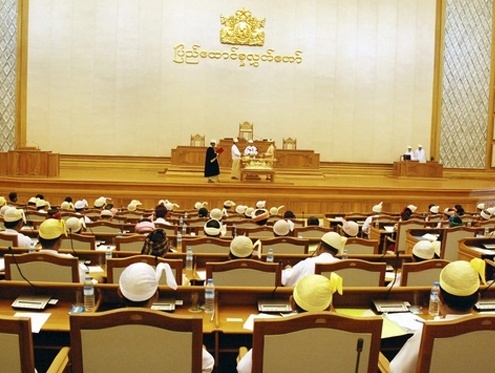A parliamentary-backed commission has failed to identify the infamous blogger Dr Seik Phwa that the group had been tasked with investigating due to “technical difficulties”.
With no suspects coming forward to identify themselves or others, the commission ruled that identifying Dr Seik Phwa would require assistance from the US-based company Google, thus making it impossible to expose the writer, said Lower House member Ye Htun.
The parliamentarian went on to lament that Deputy Information Minister Ye Htut, who he claims was widely believed to be the man by the blog, refused to admit to his role in the controversy.
“Deputy-Information Minister U Ye Htut, who is believed to be the blogger, denied the allegation,” said Ye Htun.
“He wouldn’t confess, but according to the investigation [by the parliament backed Commission to expose and take action on the blogger] it can be assumed that U Ye Htut is the one responsible although they cannot cite any evidence.”
In an article published in the government mouthpiece The New Light of Myanmar on Tuesday, the state organ reiterated Ye Htut’s stance that officials from the “Ministry of Information testified that they had nothing to do with the case”.
In February, the legislator appointed the committee to identify the blogger after Dr Seik Phwa published a bruising critique of the parliament’s efforts to exercise more power over the country’s constitutional tribunal.
While legislators failed to determine the individual behind the blog, the parliament did reprimand Khin Maung Nyo, an editor who republished a Dr Seik Phwa article.
According to the report in New Light published on Tuesday, the paper accused the editor of successfully covering up any connection he might have had with the blogger.
Under pressure from the commission to reveal the identity of Dr Seik Phwa, the editor reportedly claimed responsibility for publishing the piece and received a formal warning from the country’s lawmakers.
Since the parliament’s seventh session kicked off on 25 June, the legislator has been off to a rocky start.
Last week, the lower house of parliament unsuccessfully attempted to delay a highly anticipated announcement naming the companies that had secured telecommunication licenses.
On Monday, the union parliament publicly rejected a proposal submitted by the Union Election Commission to discuss whether or not to replace the country’s current electoral system before the next round of general elections in 2015.
The legislator reportedly turned down the UEC’s submission on the grounds that the proposal was not submitted in line with the parliament’s procedures.



